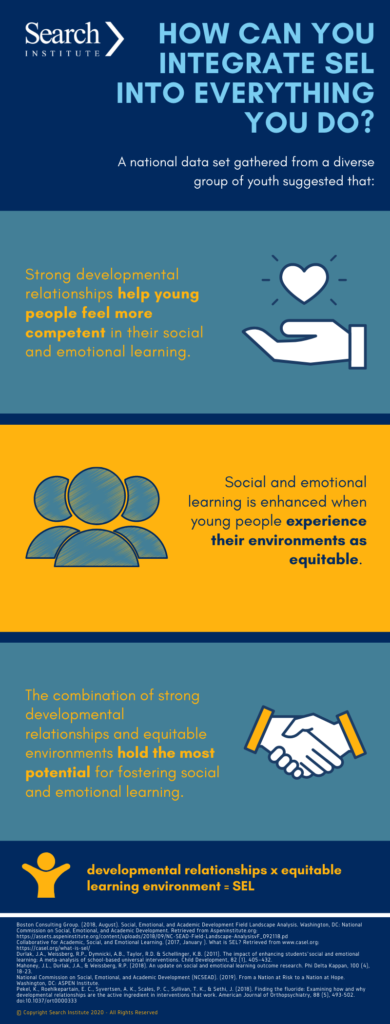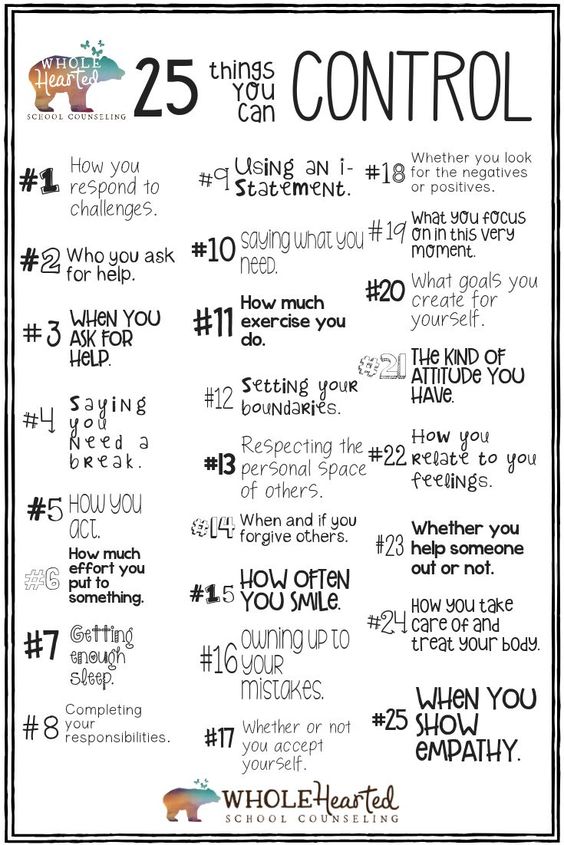A person’s ability to be aware of, control and express their own emotions as well as being cognizant of the emotions of others describes their emotional intelligence, often referred to as your Emotional Quotient (EQ).
- Emotional self-awareness: recognizing, naming, and understanding the cause of one’s feelings
- Handling emotions appropriately: demonstrating productive options for managing stress and upsetting feelings rather than “acting-out” negatively
- Self-motivation: thinking, planning, and solving problems by using impulse control, frustration tolerance, and delayed gratification to reach a specific goal
- Empathy: recognizing and understanding emotions in others
- Social skills: handling emotions in relationships and interacting harmoniously with others.
Social and Emotional Learning: Strategies for Parents
There are many ways parents can encourage emotionally intelligent behavior in their children. Check out this guide to resources for learning more about character development.
Strategies at home:
- Be a good listener
- Model the behaviour you seek
- Nurture your child’s self-esteem
- Respect differences
- Take advantage of support services
By Edutopia

High EQ as a job requirement
EQ has much more influence on your success, now and in the future, than your IQ.
A machine can’t easily replace a human’s ability to connect with another human being, so those who have high EQs will be in demand.
What is your EQ? How emotionally intelligent are you?
Check out this quick test and video by MindTools.


